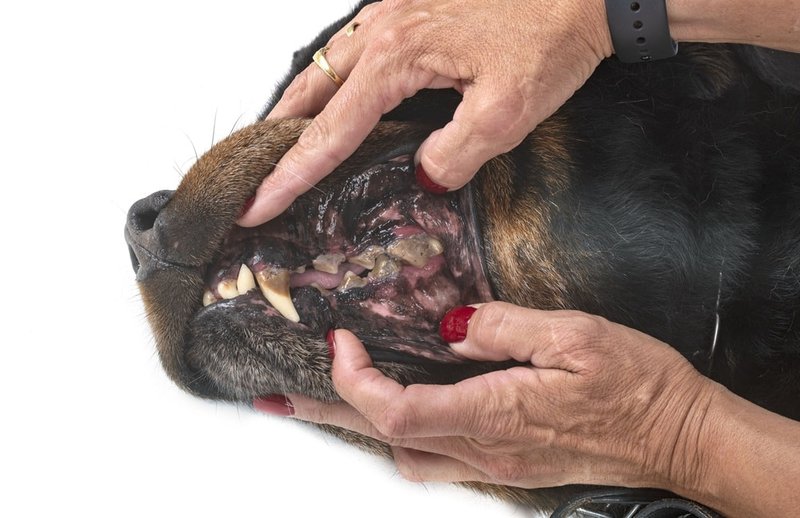There are few things out there as genuine as dog kisses. When a dog licks you, they are telling you that they love you and see you as family. It truly is an adorable moment to share with your pooch. That is until you get close enough to get a whiff of their breath.
Contrary to popular opinions, bad breath is not a normal thing in dogs. It can be a result of a number of issues including systemic issues like kidney disease as well as local issues like dental abscesses and oral tumors.
Here is a bit more on these and other reasons why your dog’s breath stinks.
9. Dehydration
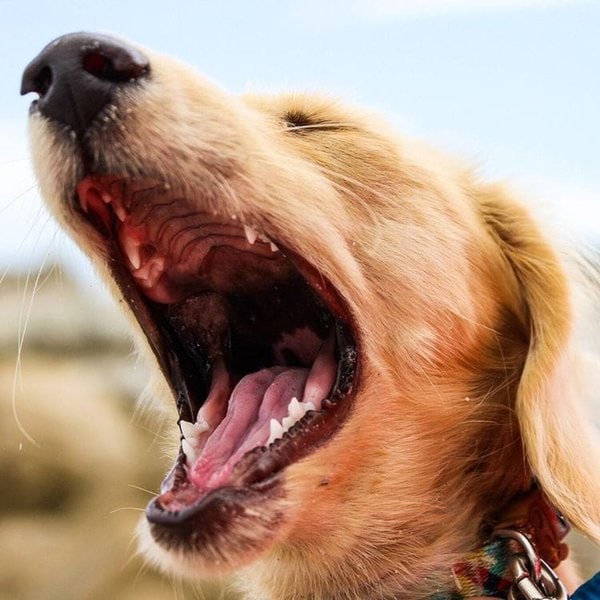
Saliva plays a huge role in keeping bad breath at bay for your dog. Dehydration causes dryness of mucosal surfaces, including your dog’s mouth, which strips them of one of the most important defenses that they have against halitosis.
In addition to the bad breath, your dog may display other signs of dehydration, including lethargy and dryness of the nose pad.
The solution, in this case, is simple. Just ensure that your dog gets enough water every day.
8. Dog Food And Treats
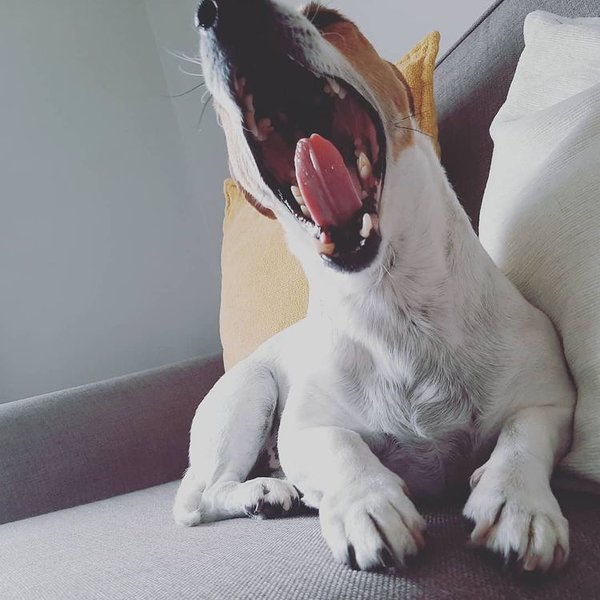
The food you are giving your dog may also be contributing to their bad breath. This is common with fish and will leave your dog with horrible, fishy breath.
It is also common in dog diets that heavily feature meat, whether it is cooked or it is raw.
To prevent this, simply include things like vegetables and fruits in your doggy’s diet. They don’t even have to take up too much space on the dog’s plate. The best part is that these veggies and fruits can be given separately as snacks.
7. Buildup Of Plaque
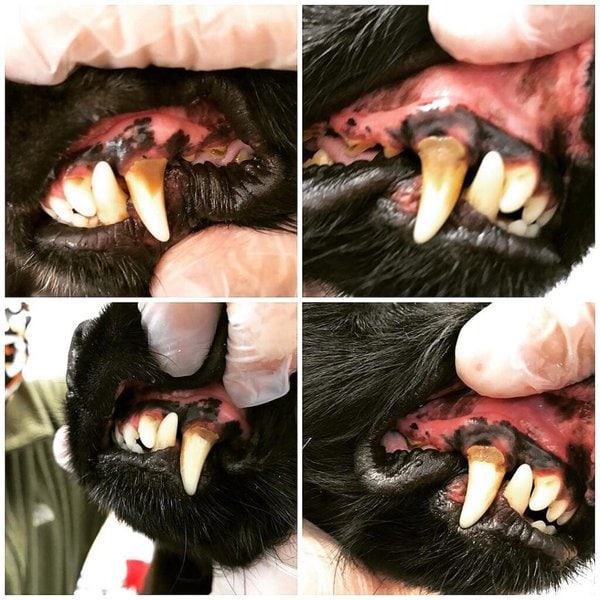
Plaque can very easily build up on your dog’s teeth, especially if you do not prioritize oral hygiene as a part of their regular grooming schedule.
This plaque harbors microorganisms that feed on the food residue. The byproducts of these microorganisms are more often than not what will cause the terrible breath in your dog.
The solution for plaque in your dog lies not in masking the bad breath in mechanically removing the plaque. This can either be achieved using a doggy toothbrush or chew toys.
6. Dental Cavities
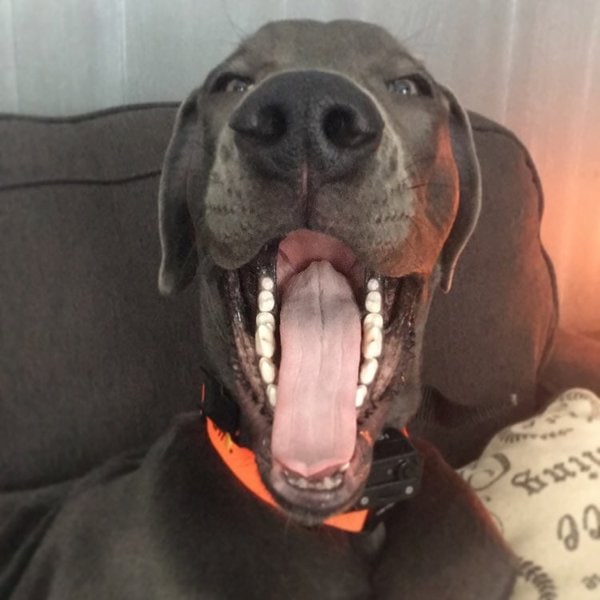
Dental cavities are a common consequence of poor dental hygiene in dogs. The same germs that thrive on the plaque build-up are responsible for eating away at your dog’s teeth. Their byproducts are what cause the dog’s bad breath.
While the dog may not verbalize their discomfort, cavities can actually cause a lot of pain to your dog. You may notice that in addition to the halitosis, your dog is completely unwilling to eat anything. This is more often than not due to the pain.
5. Gum Infection

Infection of the gum is sometimes referred to as gingivitis. In severe cases, your dog may experience ulceration with the formation of pus. The combination of this debris and the waste products from the bacteria in your dog’s mouth result in the horrible breath you pick up on.
Gum infections are a serious issue as they could result in compromise of the structural integrity of your dog’s teeth. In severe cases, your dog may have to get all their teeth prophylactically removed before they fall off traumatically on their own.
4. Liver Disease
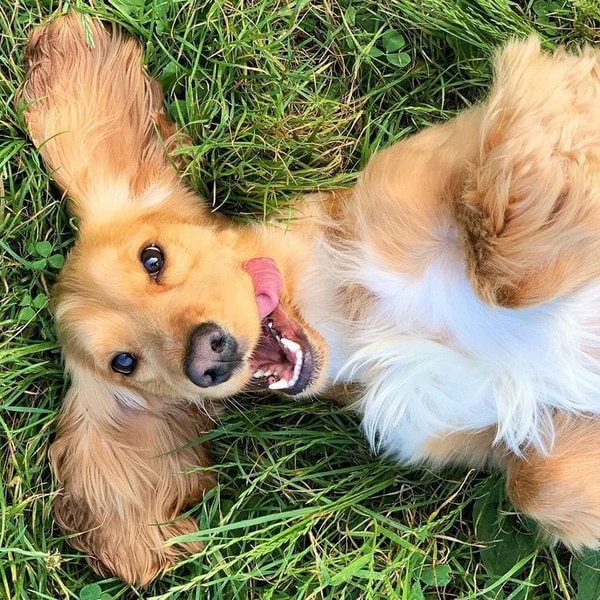
Liver disease is one of the few systemic conditions that can manifest with halitosis in your dog. Your dog’s liver serves several functions, including clearing toxins from their body.
When your dog’s liver fails, all these toxins build up in their bodies, including their lungs. One of the ways this manifests is through bad breath. In this case, the breath will have a musky and sulfur-like quality to it.
You may also notice other signs of liver failure in your dog, like yellowing of the eyes, increased scratching, and pale stools.
3. Kidney Disease
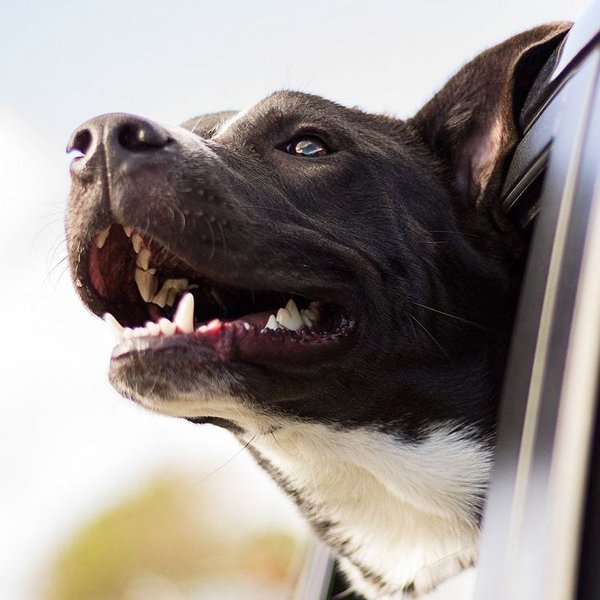
Kidney disease in your dog could also cause them to have bad breath. As with liver disease, it all boils down to the dog’s kidneys failing at their job of clearing toxins from the dog’s body.
The most important of these toxins is urea. This is deposited all over your dog’s body, including their lungs, where it causes bad breath when exhaled.
In this case, the bad breath will have a stench similar to urine.
2. Dental Abscesses
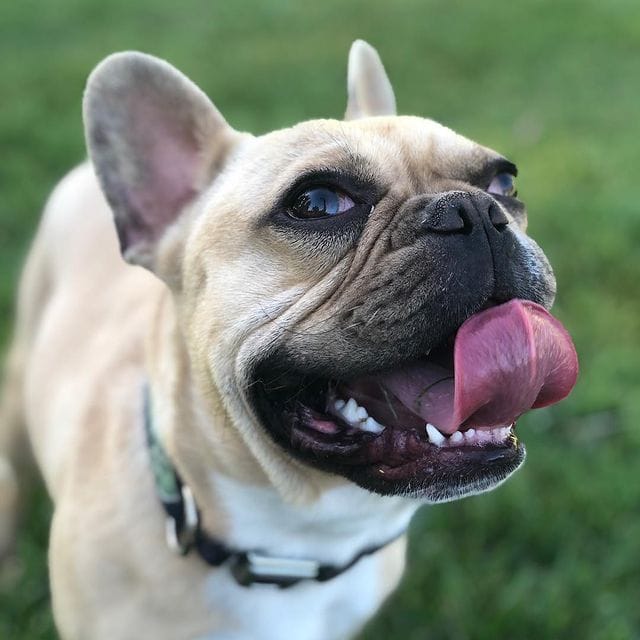
Dental abscesses are collections of pus within the dog’s oral cavity. More often than not, they occur as complications of untreated dental cavities. Here, the bacteria responsible for the cavity eat away the tooth to the level of the gum.
When the dog’s immune system launches a defense in the gum, the result is a walled-off pocket of pus resulting from an abscess.
The lousy dog breath resulting from these abscesses should be the least of your concerns, as an untreated dental abscess could cause deadly complications, including sepsis.
1. Oral Tumors
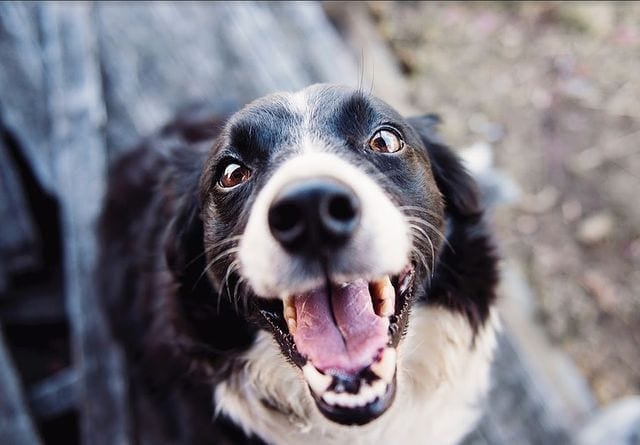
Oral tumors are rare in dogs but can happen. When they do, the mass will typically arise from the gums, tongue, or other mucosal surfaces of the oral cavity.
Malignant oral tumors usually grow very fast. They may either form cauliflower-like masses projecting into the oral cavity or ulcerate. The ulcerative kind is more likely to cause halitosis as the ulcer is quickly invaded by bacteria in the dog’s mouth.
Related Questions
Can Dogs Use Human Toothpaste? It is not safe to use human toothpaste to clean your dog’s mouth. This is because some of the ingredients used to make human toothpaste are very toxic to dogs. This includes artificial sweeteners like xylitol. The main problem when it comes to using human toothpaste on dogs is the fact that they don’t know that they should spit out the toothpaste and will instead swallow it.
How Can I Freshen My Dog’s Breath Without Brushing? The easiest and most effective way to freshen up your dog’s breath without brushing their teeth is by using dental water additives. These are made using herbs like peppermint, and all you have to do is add a few drops to your dog’s drinking water. You could also give your dog fresh fruits and vegetables like carrot sticks or apple slices.
How Can I Cure My Dogs Bad Breath Naturally? If your dog’s bad breath is due to local issues like gum disease or dental cavities, all it takes is proper dental hygiene to freshen things up naturally. This could be as simple as investing in chew toys to help your dog mechanically clean its teeth. You could also counter the smell using fragrant treats and snacks, including cinnamon-flavored snacks, coconut oil, coconut water, and fresh dog-friendly fruits.

